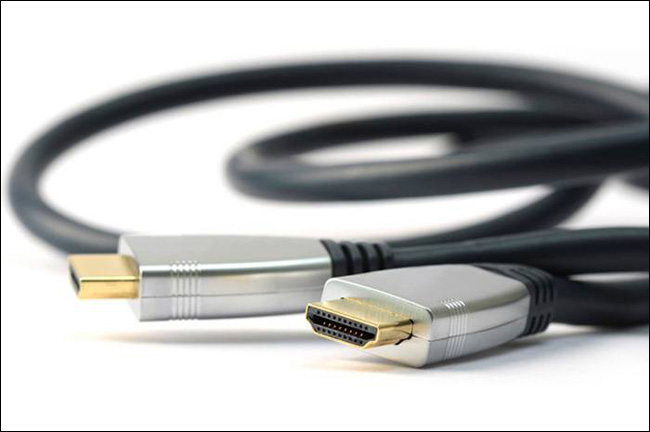All things need to know about HDMI 2.1 standard
Previously, we used to get acquainted with many HDMI standards, but today, TipsMake.com will introduce you to HDMI 2.1 and all the things you need to know about this HDMI standard.
- Difference between HDMI and DVI
- How to fix some errors connecting TV to laptop via HDMI port
- How to connect a laptop to a TV using an HDMI port
Basic information about HDMI
You can refer to: Definition and uses of HDMI
Specifications of HDMI 2.1
HDMI 2.1 introduces a host of new features and cable bandwidth along with other connections. Although most HDMI specifications today can handle almost all current content distributed via cable, DVD, Blu-ray and on digital media, the TV industry still growing at breakneck speed. In-depth understanding, we will see higher resolution and frame rate on TV. Here are a few specifications that make HDMI 2.1 the technology of the future:
- Support up to 10k resolution. This HDMI standard also supports an aspect ratio of up to 120 Hz in this resolution.
- Increase bandwidth from 18Gbps (HDMI 2.0) to 48Gbps.
- Adding dynamic metadata to the HDR rendering process allows to change the brightness according to the mechanism on each frame like with Dolby Digital HDR.
- Additional VRR feature in Game Mode allows source device such as control panel or frequency refresh PC to synchronize with connected screen.
- Audio enhancement: HDMI 2.1 provides Audio Return Channel (ARC) to support similar audio programs like DTS X and Dolby Atmos.

HDMI 2.1 will impact 4K games
If you are a hardcore gamer, you will appreciate what HDMI 2.1 promises to bring. The current HDMI 2.0 standard also has the ability to support 4K gaming at a rate of 60 frames per second but there are still many limitations that players face. For example, 4K games via HDMI 2.0 lag and motion blur. Meanwhile, HDMI 2.1 promises to fix these errors. HDMI 2.1 supports larger bandwidth, meaning higher resolution and frame rate.
Besides, HDMI 2.1 is also enhanced by adding dynamic HDR support (Dynamic HDR). Dynamic HDR ensures every video or game moment is displayed with high sharpness in depth, tones and more colors. The Game Mode VRR (frame rate change) feature for the control panel and PC will allow the GPU to display images quickly.
Should I upgrade to HDMI 2.1?
To take advantage of all these new features, you'll need to change everything from new TVs, new HDMI cables, new games and new source devices. Since most of the content is still high resolution, with some digital platforms providing 4K content, I think you should wait until next year to upgrade completely.
Conclude
With the specifications that HDMI 2.1 promises to bring, it is clear that this upgrade will revolutionize our entertainment life. Maybe later this year or early next year, we will see more TVs and game consoles that support HDMI 2.1.